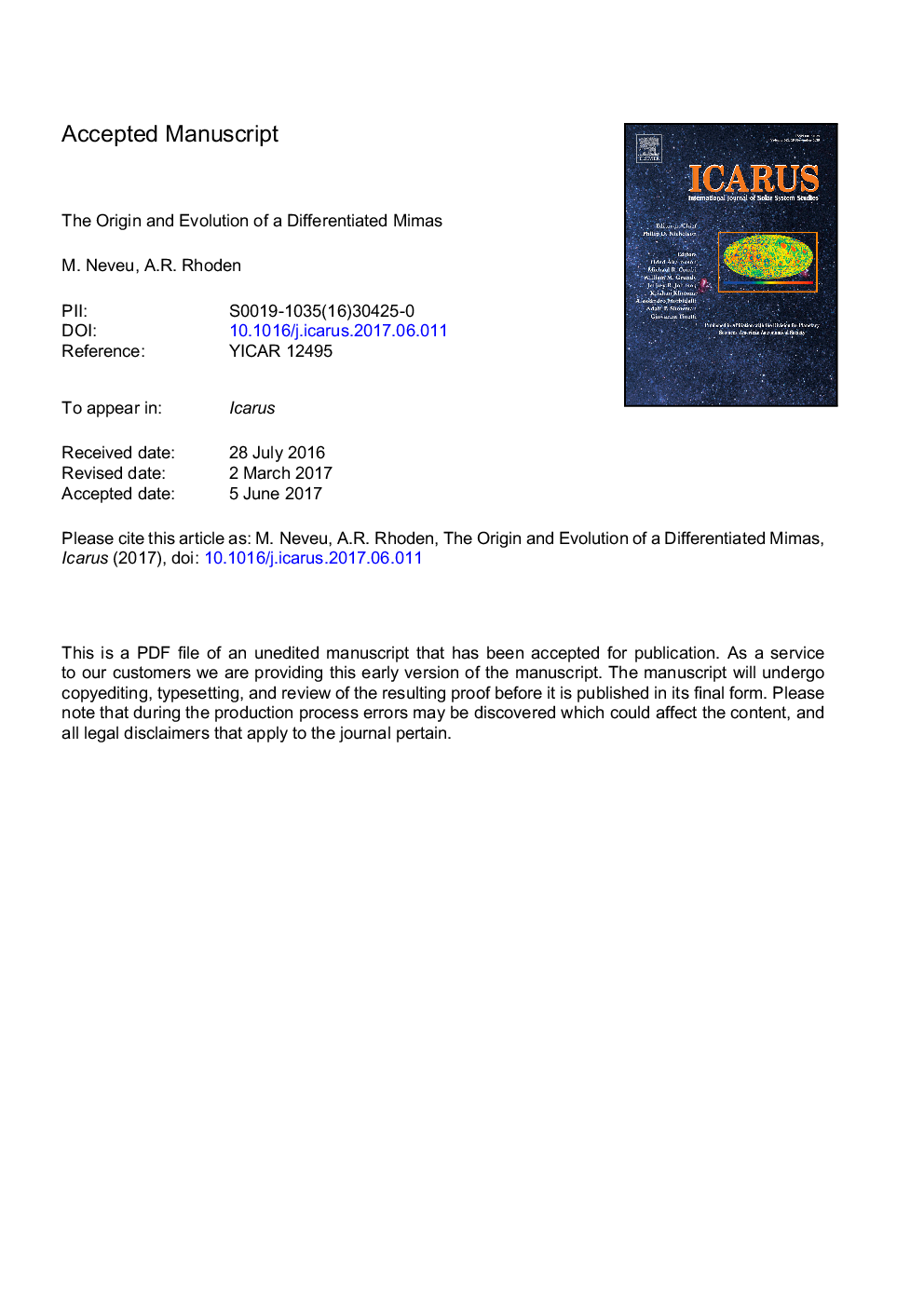| کد مقاله | کد نشریه | سال انتشار | مقاله انگلیسی | نسخه تمام متن |
|---|---|---|---|---|
| 5486980 | 1523495 | 2017 | 28 صفحه PDF | دانلود رایگان |
عنوان انگلیسی مقاله ISI
The origin and evolution of a differentiated Mimas
ترجمه فارسی عنوان
منشاء و تکامل یک مماس متمایز
دانلود مقاله + سفارش ترجمه
دانلود مقاله ISI انگلیسی
رایگان برای ایرانیان
کلمات کلیدی
زحل، ماهواره، ماهواره ها، شکل گیری، جزر و مد، بدن جامد، فضای داخلی،
موضوعات مرتبط
مهندسی و علوم پایه
علوم زمین و سیارات
علوم فضا و نجوم
چکیده انگلیسی
In stark contrast with its neighbor moon Enceladus, Mimas is surprisingly geologically quiet, despite an eccentric orbit and distance to Saturn prone to levels of tidal dissipation 30 times higher. While Mimas' lack of geological activity could be due to a stiff, frigid interior, libration data acquired using the Cassini spacecraft suggest that its interior is not homogeneous. Here, we present one-dimensional models of the thermal, structural, and orbital evolution of Mimas under two accretion scenarios: primordial, undifferentiated formation in the Saturnian sub-nebula, and late, layered formation from a debris ring created by the disruption of one or more previous moons. We find it difficult to reproduce a differentiated, eccentric Mimas under a primordial accretion scenario: either Mimas never differentiates, or the internal warming that leads to differentiation increases tidal dissipation, yielding runaway heating that produces a persistent ocean, thereby circularizing Mimas' orbit. Only if Mimas accretes very early (so that the decay of short-lived radionuclides initiates differentiation) but its rheology is not highly dissipative (in order to stop runaway tidal heating even if the eccentricity is not negligible) can the simulations match the observational constraints. Alternatively, a late, layered accretion scenario yields a present-day Mimas that matches observational constraints, independently of the magnitude of tidal dissipation. Consistent with previous findings, these models do not produce an ocean on Enceladus unless its orbital eccentricity is higher than today's value.
ناشر
Database: Elsevier - ScienceDirect (ساینس دایرکت)
Journal: Icarus - Volume 296, 1 November 2017, Pages 183-196
Journal: Icarus - Volume 296, 1 November 2017, Pages 183-196
نویسندگان
M. Neveu, A.R. Rhoden,
